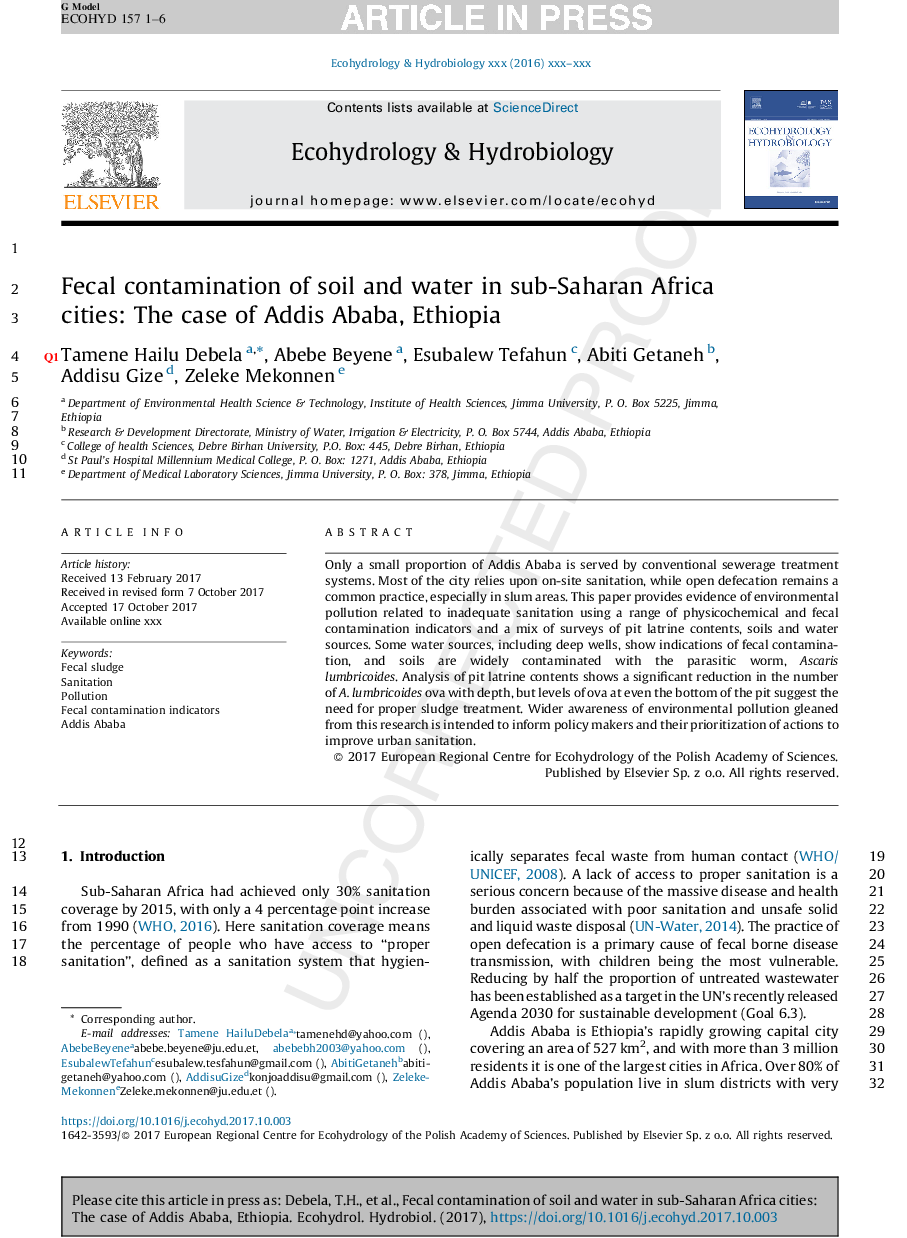| Article ID | Journal | Published Year | Pages | File Type |
|---|---|---|---|---|
| 8847662 | Ecohydrology & Hydrobiology | 2018 | 6 Pages |
Abstract
Only a small proportion of Addis Ababa is served by conventional sewerage treatment systems. Most of the city relies upon on-site sanitation, while open defecation remains a common practice, especially in slum areas. This paper provides evidence of environmental pollution related to inadequate sanitation using a range of physicochemical and fecal contamination indicators and a mix of surveys of pit latrine contents, soils and water sources. Some water sources, including deep wells, show indications of fecal contamination, and soils are widely contaminated with the parasitic worm, Ascaris lumbricoides. Analysis of pit latrine contents shows a significant reduction in the number of A. lumbricoides ova with depth, but levels of ova at even the bottom of the pit suggest the need for proper sludge treatment. Wider awareness of environmental pollution gleaned from this research is intended to inform policy makers and their prioritization of actions to improve urban sanitation.
Related Topics
Life Sciences
Agricultural and Biological Sciences
Agricultural and Biological Sciences (General)
Authors
Tamene Hailu Debela, Abebe Beyene, Esubalew Tesfahun, Abiti Getaneh, Addisu Gize, Zeleke Mekonnen,
